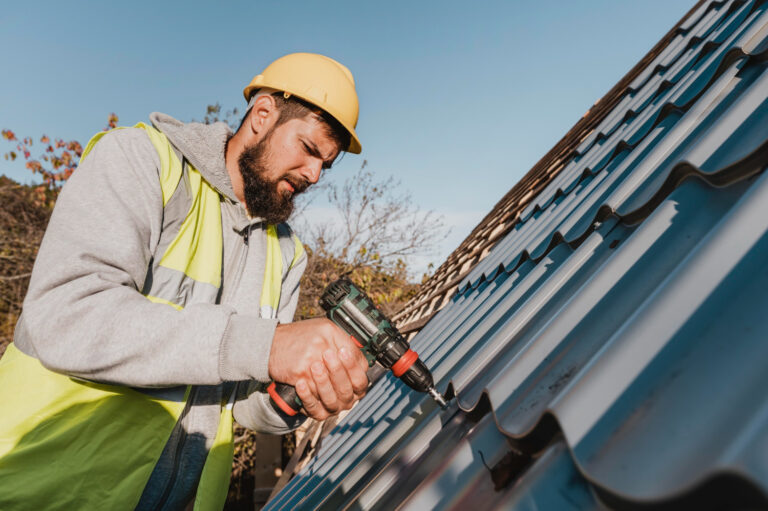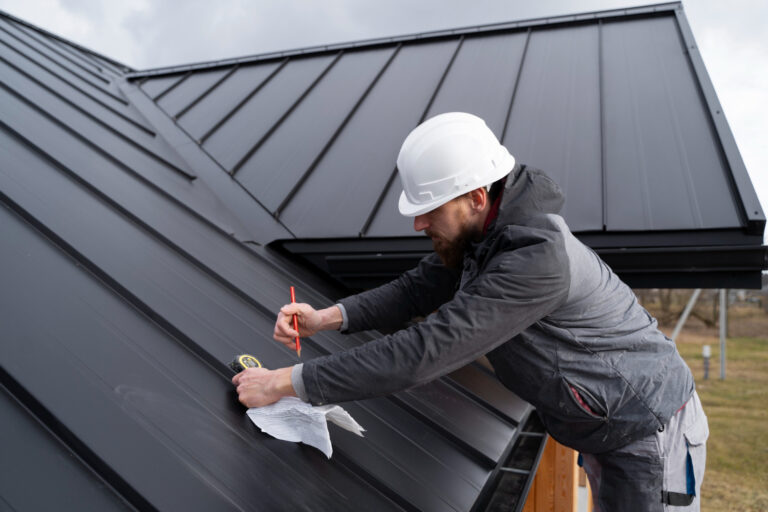When it comes to safeguarding your home, your roof is one of the most essential components. It protects you from the elements, adds to your home’s aesthetic appeal, and can even increase your property value. However, choosing the right roof and ensuring it’s in top condition requires knowledge and care. In this guide, we’ll walk you through everything you need to know about roofing, from choosing materials to regular maintenance tips.
1. Choosing the Right Roofing Material
The first step in any roofing project is selecting the right material. The market is filled with a wide variety of roofing options, each with unique advantages:
- Asphalt Shingles: These are the most common choice for homeowners due to their affordability and ease of installation. They come in various colors and styles, offering versatility and practicality.
- Metal Roofing: Known for its durability and energy efficiency, metal roofing can withstand extreme weather conditions and last up to 50 years or more. It’s an excellent choice for areas prone to heavy rain or snow.
- Clay and Concrete Tiles: These materials are popular in warmer climates due to their ability to keep homes cool. While they’re highly durable, they’re also heavier and more expensive.
- Wood Shingles and Shakes: Offering a rustic, natural look, wood roofing can provide good insulation but requires more maintenance to prevent rot or insect damage.
- Slate: Known for its beauty and longevity, slate is one of the most durable roofing materials. However, it is costly and requires a skilled installer.
2. Why Roof Maintenance Matters
Routine maintenance is crucial to ensure your roof remains in top condition and continues to protect your home effectively. Here’s why regular roof care is important:
- Prevent Damage: Checking for loose shingles, cracks, or leaks regularly can help you identify problems early and avoid costly repairs.
- Increase Lifespan: A well-maintained roof can last significantly longer, saving you money on early replacements.
- Energy Efficiency: A well-insulated roof prevents heat from escaping in winter and keeps your home cool in the summer, reducing your energy bills.
3. Signs You Need a Roof Replacement
While regular maintenance can extend the life of your roof, there are times when replacement is inevitable. Here are some signs it may be time to invest in a new roof:
- Shingle Damage: If your shingles are cracked, curled, or missing entirely, it’s a sign that your roof may no longer be able to provide adequate protection.
- Leaks or Water Damage: Persistent leaks or water stains on your ceiling are a clear indication that your roof is compromised.
- Sagging Roof: If your roof appears to be sagging or has a noticeable dip, it could signal structural damage that requires immediate attention.
- Age: Most roofing materials have a lifespan of 20-30 years. If your roof is nearing the end of its life, it’s a good idea to plan for replacement.
4. DIY vs. Professional Roofing
While some homeowners attempt DIY roofing repairs, roofing is a skilled job that requires expertise, tools, and safety precautions. Here’s a comparison between DIY and hiring a professional roofer:
- DIY Roofing: This can be cost-effective for minor repairs but comes with risks. Improper installation or repair can lead to further damage, void warranties, and even cause safety issues.
- Professional Roofers: Hiring a professional ensures the job is done correctly and efficiently. Professionals have the necessary experience and equipment to handle complex roofing jobs, ensuring your roof is installed or repaired to the highest standards.
5. Choosing a Roofing Contractor
If you decide to hire a professional, it’s essential to select the right roofing contractor. Here are a few tips to help you choose:
- Check Credentials: Ensure that the contractor is licensed and insured. This protects you in case of accidents or damage during the project.
- Get Multiple Estimates: Compare prices and services from different contractors to ensure you’re getting a fair deal.
- Read Reviews: Look for customer reviews and testimonials to gauge the contractor’s reputation and quality of work.
- Warranty: A reputable contractor should offer a warranty on both the materials used and their workmanship.
6. Conclusion
Your roof is more than just a structure; it’s your home’s first line of defense against the elements. By choosing the right material, performing regular maintenance, and hiring professional help when needed, you can ensure your roof provides optimal protection for years to come. Whether you’re building a new home, replacing an old roof, or simply looking to maintain your current one, always prioritize quality and professional expertise to get the best results.
Remember, your roof does more than shield you from rain and sun—it’s an investment in the safety and comfort of your home.




1 thought on “Protect Your Home with the Right Roof”
Just wanted to share that I had a look at 7gggbet. It has some interesting features that caught my eye. Explore more at 7gggbet.